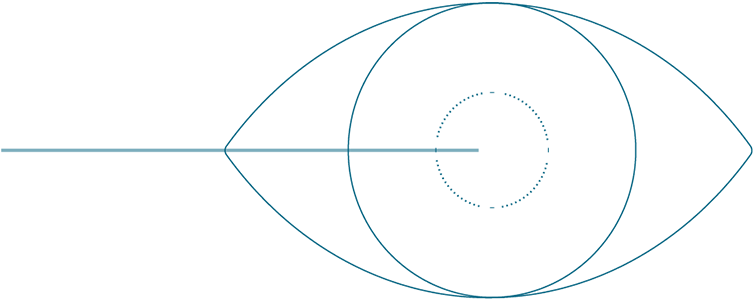- Spokane: 509.928.8040
- Coeur d’Alene: 208.664.9888
- Request an Appointment
- Careers
Patient Procedures at Empire Eye Physicians
Implantable Collamer Lenses (ICL)
Experience the Freedom and Flexibility of the EVO ICL Lenses
Implantable Collamer Lens surgery differs from LASIK and PRK because it does NOT alter the structure of the eye or involve corneal tissue removal. Rather, this surgery involves obtaining an Implantable Collamer Lens (ICL) specific to your prescription. The procedure involves creating a small opening in the eye and inserting the ICL behind the iris and in front of the eye’s crystalline lens and only takes about 20 to 30 minutes. The ICL works naturally with your eye’s optical system to enhance its performance and treats nearsightedness (myopia) and astigmatism. Empire Eye Physicians’ use EVO ICL.

Procedure Benefits
- Provides clear, sharp vision
- Can treat nearsightedness with or without astigmatism
- 20–30 minute procedure
- For patients who may not be candidates for LASIK or other vision correction procedures due to thin corneas
- Quick recovery time
- Does not cause dry eye syndrome
- Excellent night vision
- Offers UV protection
- Removable by your doctor
- Not visible once in place
What is EVO ICL?
EVO ICL, also called an Implantable Collamer® Lens, is a refractive implant to correct common vision issues like myopia
(nearsightedness) with or without astigmatism. Unlike some other vision correction options, the EVO ICL is an additive
technology that corrects vision without the removal of any corneal tissue. The EVO ICL is meant to reduce or eliminate
the need for glasses and contacts and unlike most permanent refractive solutions, EVO ICL is removable by your
doctor, for added peace of mind.
EVO vs LASIK vs PRK
EVO ICL

The EVO ICL (Implantable Collamer Lens) is an implant that corrects vision without removing any corneal tissue.
Possible candidates include those with:
- Moderate to severe nearsightedness
- Astigmatism
- Thin cornea
LASIK

LASIK is a two-step laser vision correction surgery where a flap is made on the surface of the eye, called the cornea, and the underlying layers are reshaped with an excimer laser to correct vision.
Possible candidates include those with:
- Mild to moderate nearsightedness
- Farsightedness
- Astigmatism
PRK

PRK is a laser vision procedure similar to LASIK but no corneal flap is created. The top layer of the cornea, called the epithelium, is removed and the underlying tissue is reshaped to correct vision.
Possible candidates include those with:
- Mild to moderate nearsightedness
- Farsightedness
- Astigmatism
EVO ICL FAQs
-
What is EVO ICL Lens?
EVO ICL is an Implantable Collamer™ Lens that corrects common vision problems such as nearsightedness (myopia) and astigmatism. Collamer is a biocompatible material that works in harmony with the eye. The lens, which is slightly smaller than a typical contact lens, is implanted in the eye during a 20 to 30 minute procedure. Unlike laser vision correction surgeries that permanently change the shape of your cornea, the EVO ICL procedure is additive, meaning that no corneal tissue is removed. Worldwide, more than 1 million EVO ICL lenses have been implanted.
-
Who is a Candidate for Vision Correction with EVO ICL?
People who want a flexible and biocompatible vision correction option, as well as many patients who are not candidates for laser vision correction, find that EVO ICL is the right procedure for them.
Ideal candidates for EVO ICL:
● Are between the ages of 21 and 45
● Are seeking a vision correction solution for moderate to severe nearsightedness (with or without astigmatism)
● Have a stable prescription that has not changed within the last year
● Have good ocular health with no history of glaucoma, iritis, or diabetic eye disease -
How is the EVO ICL Lens Procedure Performed?
Vision correction with the EVO ICL is an outpatient procedure that typically takes 20 to 30 minutes. After an initial exam with your ophthalmologist to determine that the EVO ICL is right for you, you will schedule your procedure. On the day of the procedure, your eyes will be numbed with an anesthetic eye drop and your refractive surgeon will implant the ICL between the iris (colored part of the eye) and the natural lens. Your surgeon will likely schedule a follow-up appointment the same day as the procedure.
-
Can the EVO Lens Be Removed?
Yes, the EVO ICL is intended to provide permanent vision correction, but it can be removed or upgraded by your surgeon.
-
Will I Be Able to Feel the EVO ICL Lens
No, patients should not feel the lens as it does not adhere to any structures within the eye and does not move once in place.
-
Will Other People Be Able to See the EVO ICL Lens?
No, the EVO lens is placed behind your iris where only your eye doctor will be able to detect it.
-
Are There Any Risks with the EVO ICL Procedure?
Any medical procedure has certain risks associated with it. Potential complications of the EVO ICL procedure, although rare, include inflammation, an increase in eye pressure, or the need for an additional procedure, like an ICL exchange. While these potential risks are mitigated as much as possible, they can all typically be addressed early and without long-term side effects.
Patient Testimonials







